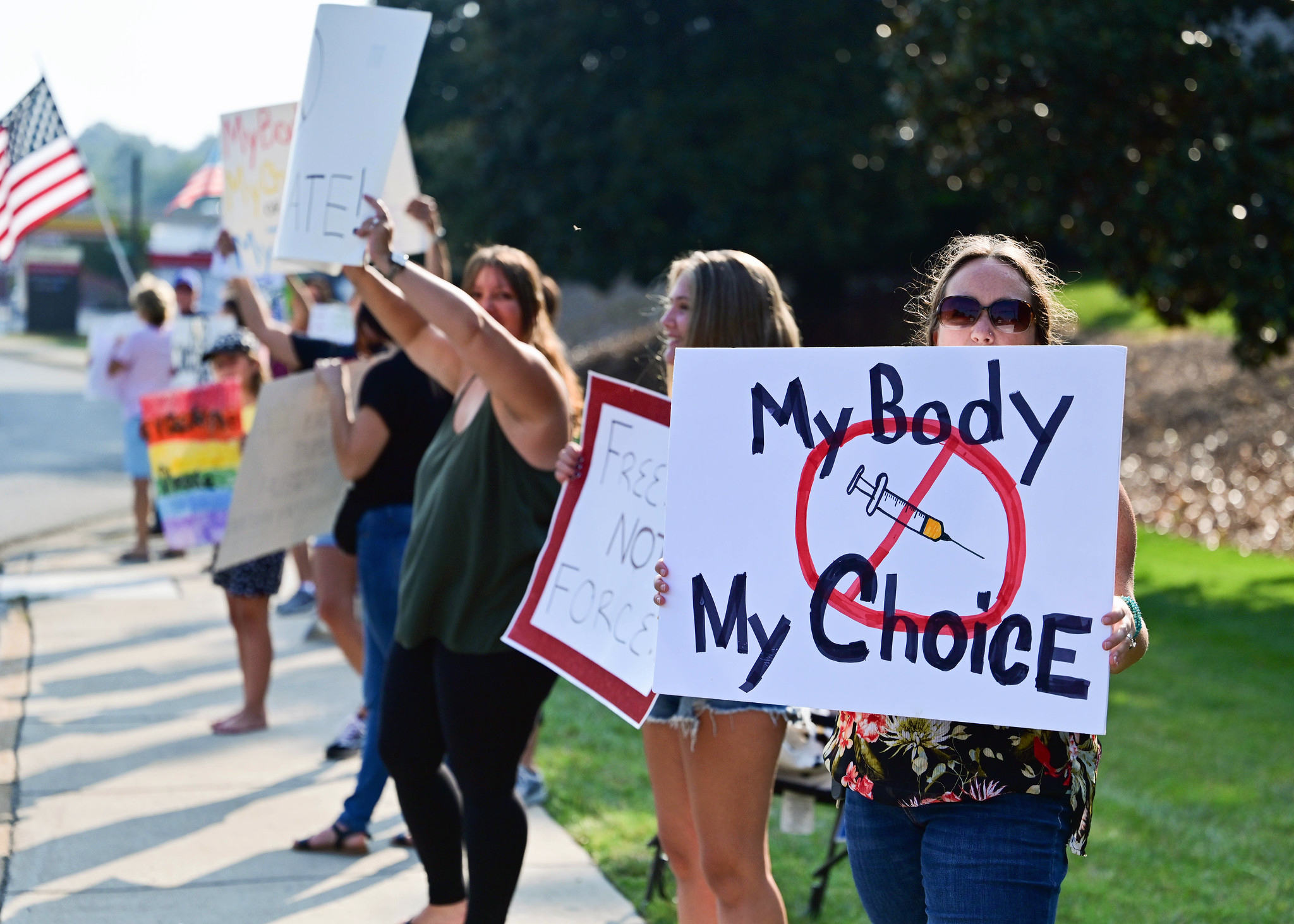Is anybody else hitting yet another pandemic wall? Another f*cking wall?!
Only half of Americans are fully vaccinated. Masks mandates are coming back. Summer is almost over, with cold weather and isolation just around the bend. Small businesses and restaurants are dreading the future. “I’m absolutely petrified about what’s coming down the pike,” a restaurant owner in my city said earlier this week.
Not to mention wildfires and historic floods and gaping economic inequality.
It feels like everything I’ve done — getting vaccinated (even if I was a little afraid to do so), doing my best to wear a mask indoors (even if it annoys me) — has done nothing. Absolutely nothing.
And that’s why I’m thinking about the psychological issue “burnout” again.
I’m remembering what I learned from reading sisters Emily Nagoski and Amelia Nagoski’s book about it earlier in the pandemic.
It didn’t feel relevant to our Covid hell then. The term burnout has traditionally been used to described work-related psychological issues. I wasn’t feeling burned-out last summer. Work was (and still is) fine. Vaccines were coming. A return to something approaching “normal” was on the horizon.
But over the past few weeks — as cases rise and anti-vaxxers dig their heels in the ground — I’m feeling things that sound a lot like burnout.
Burnout, according to Herbert Freudenberger — the psychologist who coined the term in the 1970s — has three main symptoms: emotional exhaustion, alienation, and a decreased sense of accomplishment.
It’s that last one that’s been following me around like a rain cloud. Nagoski and Nagoski describe it as “the feeling that nothing you do makes a difference.”
Did getting vaccinated matter if we need to get booster shots for the rest of our lives? Did supporting essential workers matter if they’re still being forced to risk their lives for low pay? Did supporting local businesses matter if they’re still worried about closing down for good?
Another, less primary symptom is anger. And oh, do I feel that one.
I wish I could body slam anti-maskers. I wish I could sucker punch Florida Gov. Ron DeSantis for his racist dog-whistles blaming the “border crisis.” I wish I had the time to comment “STFU” every time a yoga teacher posts anti-vax nonsense on Instagram.
That’s why knowing that I’m suffering from burnout is helpful. It gives me a roadmap to feeling a little better, even if it makes me a living version of the dog in the “This is Fine” meme.
Nagoski and Nagoski offer a few things to do to lessen burnout.
One is authentically connecting with others. That means I should probably try hard to make time with close friends (who are vaccinated). And I should keep going to therapy.
Another is to get enough rest. I’ve long struggled with that one. Our capitalist society tells us that rest is for the lazy (unless you’re rich like Jeff Bezos on his yacht). I’m going to try to find ways to rest that aren’t just vegging out watching TV, like slow walks in the park near my house.
They also talk about “completing the [stress] cycle.” They write:
While you’re managing the day’s stressors, your body is managing the day’s stress, and it is absolutely essential to your well-being that you give your body the resources it needs to complete the stress response cycles that have been activated.
What that brings to mind is maybe moving my workouts to later in the day or adding a short meditation to my evening routine. And as much as I want to stay up late and doomscroll Twitter, I need to get 8–9 hours of sleep a night.
I’ll start with some of these and see what happens. At least I know I’m not alone. In a recent Atlantic article, the physician Lucy McBride writes:
The symptoms of burnout have become medical. The work of living through a pandemic has been making us sick. As a primary-care doctor, I’m witnessing the physical-health toll of collective trauma.
Is anyone else feeling this way?
Hi, I’m Jeremy, a writer, meditation teacher, and host of the Meditation for the 99% podcast. Subscribe to my weekly email on how to be more mindful at your job, in your relationships, and when it comes to politics here.
